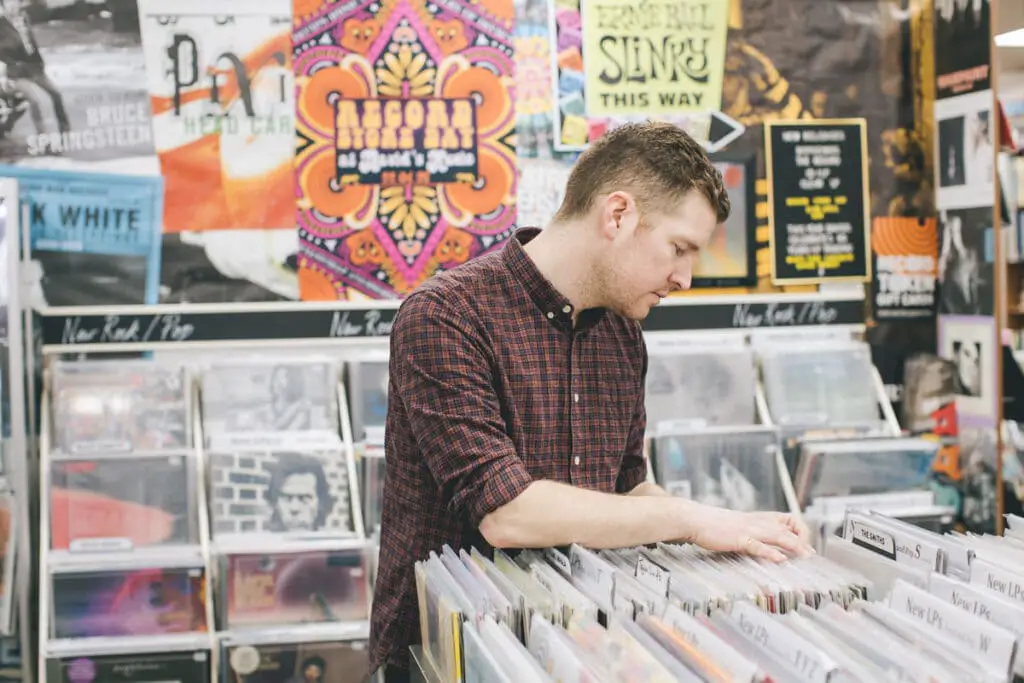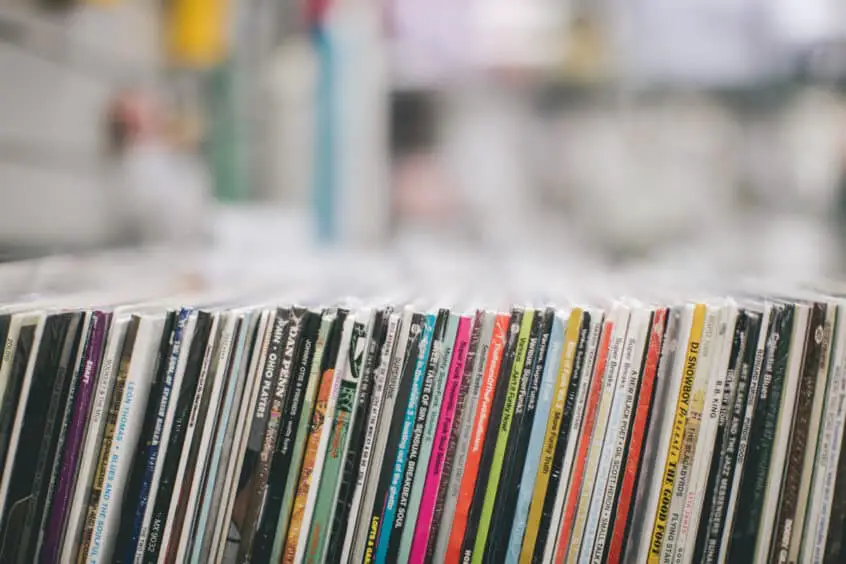The world of vinyl and record collecting is full of jargon and regularly used terms that are often confusing for those just starting out on their record-collecting journey.
Lots of terms are interchangeable or there are multiple words used to mean the same thing.
Confusing, right?
LP vs Vinyl is one of the most common examples…
So is an “LP” a “Vinyl” and vice versa?
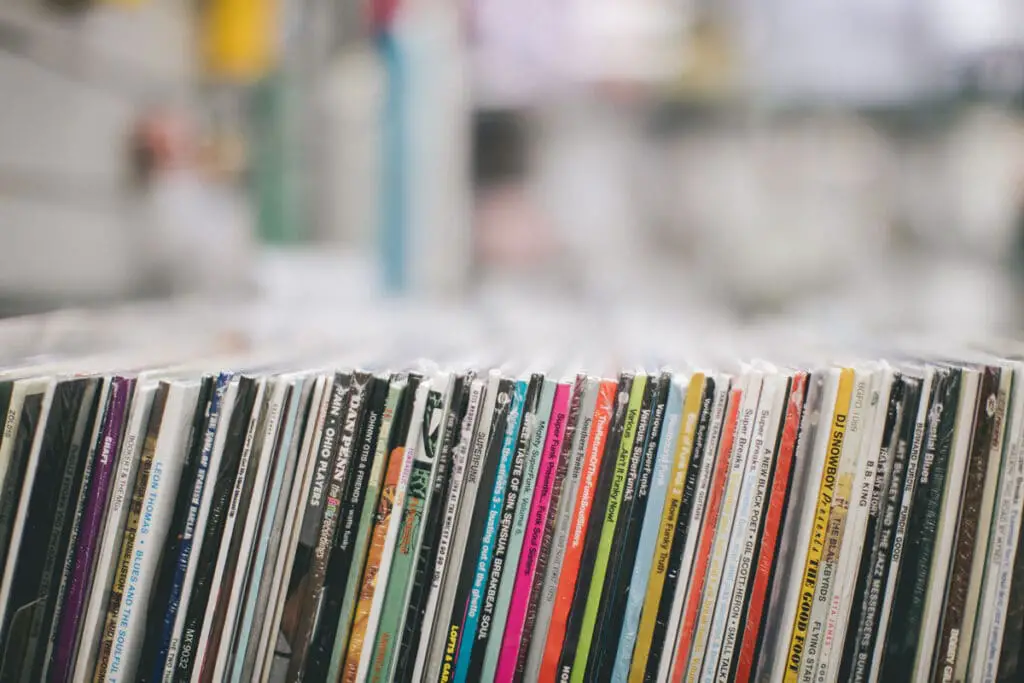
LP vs Vinyl: Here’s the short answer:
Start by understanding that an “LP” is a type of vinyl record.
The acronym “LP” stands for “Long Play.” It refers to a type of vinyl record that plays at a standard speed of 33⅓ revolutions per minute (RPM).
In modern-day terms, this usually indicates a full-length 12-inch album as opposed to a single.
The term “vinyl” refers to the material your record is made from, though these days, the terms “vinyl”, “record”, and “vinyl record” are often used interchangeably.
A “record” is simply a medium that a piece of music is released on.
Before vinyl records, there were shellac records. Shellac records are made from a material called shellac, which is a resinous secretion derived from the lac beetle.
These records were very brittle and played at a speed of 78-RPM (Revolutions Per Minute). Due to the fast playback speed, these records could only hold between three to five minutes of music per side.
…Not very convenient if you want to release large bodies of work, such as a full album of songs, for example.
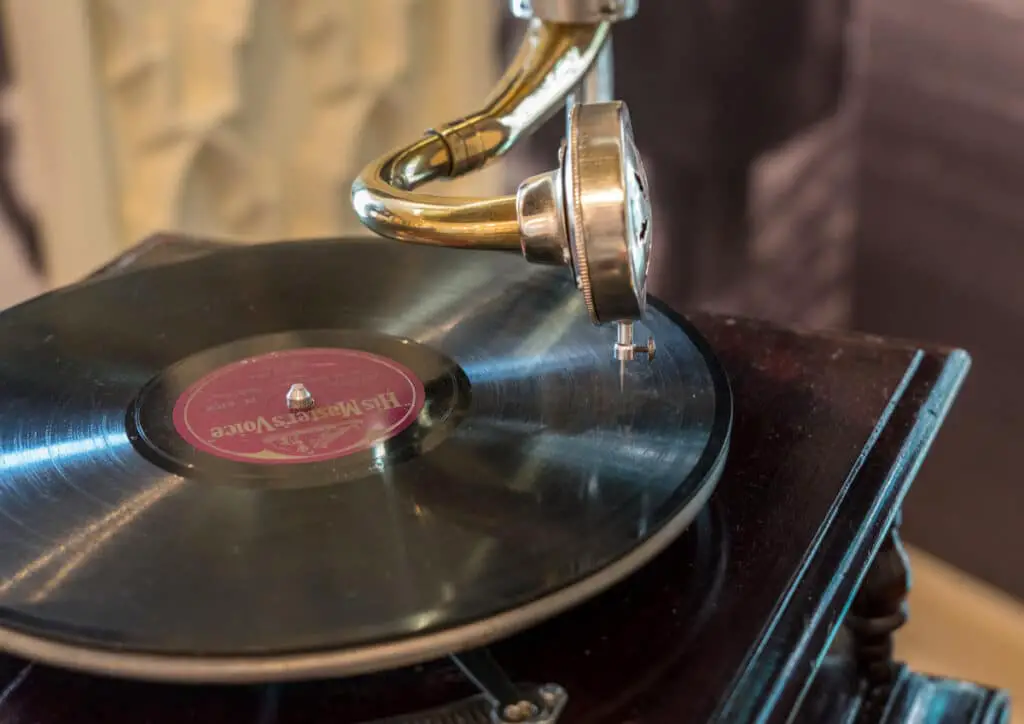
What is an LP?
Released in 1948, the modern 12-inch Long Playing (LP) 33 1⁄3 rpm microgroove vinyl records revolutionized the industry. It facilitated the inclusion of full-length albums with multiple songs or tracks on each side of the record.
10-Inch LPs
Many of the earlier long-playing records were actually 10-inch vinyl records. It was initially thought that classical music listeners would need the longer playback time of a 12-inch LP, whereas pop music listeners would do just fine with the shorter run time 10-inch LPs. In the end, the 12-inch LP became the dominant format.
Learn more about the different vinyl record types, here.
What About Singles?
A year later, in 1949, the first vinyl 7-inch 45 RPM single was released, meaning the industry now had two primary release formats:
- The long-playing (LP) – usually 12″ or 10″ vinyl record discs.
- And the smaller 7-inch 45 RPM single – perfect for releasing individual pop songs.
Thus the term LP became synonymous with albums. However, both 7-inch singles and LPs are both “vinyl” or “vinyl records”.
Vinyl, Vinyls, Vinyl Records, or Records – The Big Debate
Amusingly, the term “vinyl”, though technically it refers to the material (polyvinyl chloride), has become synonymous with vinyl records.
If you were to say, “I’m going to the record store to pick up some vinyl”, we’re hardly going to assume you mean anything other than a few records to expand your collection.
Which term is “correct” often sparks debate among purists, who will insist on the word “records” being included.
#InThe80sNoOneSaid Vinyls…it was an album or a single, an LP or a record…and they were made of vinyl pic.twitter.com/YFb4uyzXlC
— Joe Hey! (@JoeRemarkable) May 14, 2023
…And here’s where it gets really persnickety:
Is vinyl(s) the plural of vinyl?
Technically, no, “vinyls” is not a word. But does it even matter?
There’s a lot of younger folks finding a place for records in their listening habits, and that’s a wholly good thing. Let’s not put them off by slamming them with elitist backlash for using a “slang” term.
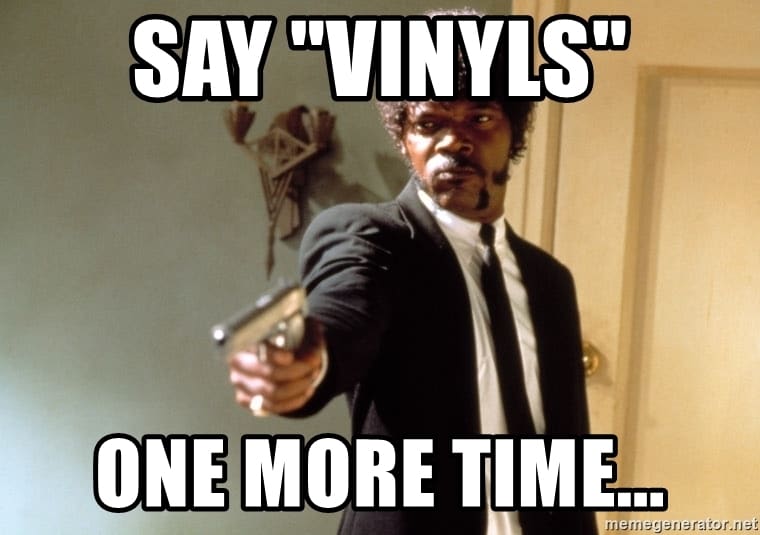
LP vs Vinyl: Is LP and Vinyl the Same? Summary
So from the above, we can conclude the term “LP” refers to a “long-playing” record; the term originates from the Columbia Record Company’s introduction of the 12-inch Long Playing (LP) 33 1⁄3 rpm microgroove record.
Vinyl, though technically referring to the material of said record, is now often used interchangeably with the term “record”.
Most importantly, don’t let jargon or other folks’ opinions prevent you from enjoying the extremely rewarding hobby of collecting physical music.
If you’re new to the hobby (perhaps seeking a more enriched music experience outside the constraints of streaming), welcome; that’s what the Sound Matters community is all about.
